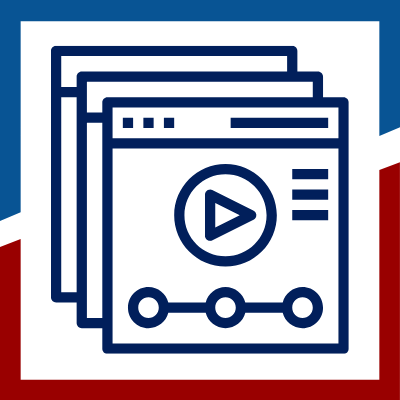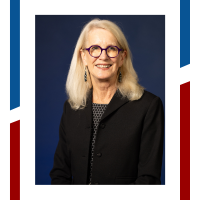Lifelong Learning with Penn Engineering Online: MOOCs
——— This content was revised November, 2024 ———————————
Looking for ways to expand your knowledge of emerging technologies? Maybe you’ve considered pursuing graduate studies in engineering; or perhaps you’re just interested in casually learning more about topics like computer programming, data analysis or machine learning. Regardless of your background or future goals, we invite you to explore our Lifelong Learning offerings and join us for a MOOC (Massive Online Open Course).
MOOCs are on-demand, noncredit courses that provide learners with an easy way to dip your toes into subjects like Python, Java, artificial intelligence or data analysis – without needing to commit to an entire degree program.
Flexible and Accessible
Each MOOC is fully self-paced, so you can study anytime from anywhere. Most courses can be completed in three to eight weeks, but you can work through the material at whatever speed accommodates your schedule and availability. You can enroll in a single course or can continue on to complete a designated series of courses and earn a Specialization Certificate in that subject.
Penn Engineering Online is committed to ensuring that these on-demand courses are open to everyone. MOOCs are priced affordably, ensuring that anyone who wants to enroll can do so accessibly.


DID YOU KNOW?
Penn Engineering alumni can access on-demand MOOCs at no charge.
Explore Engineering Disciplines
With courses that explore a range of topics from Data Analysis Using Python to Deep Learning Essentials, our MOOCs provide a pathway into a variety of disciplines within engineering. No matter how much experience you have with technology, you will find a MOOC that can meet you where you are and help you take your skills and knowledge to the next level.
We offer cutting-edge courses in three categories:

General Courses
Including Computational Thinking for Problem Solving and Urban Transit for Livable Cities

Programming
Including Introduction to Python Programming and Inheritance and Data Structures in Java

AI and Machine Learning
Including Artificial Intelligence Essentials and Statistics Essentials
The courses that are best for you depend on your background in tech and your specific learning goals. For instance, if you’re considering applying to our online Master of Computer and Information Technology (MCIT Online) degree program and have no prior experience in programming, you might be interested in signing up for Computational Thinking for Problem Solving to get a feel for this subject matter and starting to think like a computer scientist. On the other hand, if you already have some exposure to the tech field and want to upskill by earning a new credential in one of today’s most in-demand areas of study, one of the courses in the AI and Maching Learning Essentials specialization could be a good choice.
World-Class Faculty
As a student in one of our MOOCs, you’ll learn from members of the renowned University of Pennsylvania’s faculty who have their fingers on the pulse of the latest industry research and developments. These are the same professors who lead courses for students who matriculate into Penn Engineering’s Ivy League degree programs. Here are just a few of the outstanding faculty members who you can study under in our MOOCs:

Chris Callison-Burch is a prominent researcher and subject-matter expert in the field of AI who has testified before Congress about the relationship between generative AI and copyright law. He has spent decades exploring his primary arenas of research including large language models. He teaches our Artificial Intelligence Essentials MOOC and is a Professor for the department of Computer and Information Science. Callison-Burch also teaches two of our Penn Engineering Online degree program courses:

Susan Davidson is a data science pioneer and an award-winning scholar whose research has spanned domains from database technologies to innovations in biotechnology. Her primary research interests include database and web-based systems, scientific data management, provenance, crowdsourcing, and data citation. Her experience include serving as Founding Co-Director for the Center for Bioinformatics and both Founder and Chair for Advancing Women in Engineering. She currently serves as Co-Director of the on-campus MSE-DS degree program. She teaches our Computational Thinking for Problem Solving MOOC and is a Weiss Professor for the department of Computer and Information Science. Davidson also teaches one of our Penn Engineering Online degree program courses:

Brandon Krakowsky is the Director of Data Computing and Research Support for the Wharton AI and Analytics Initiative, which advances the exploration of cutting-edge technology and the development of analytics methods in modern business. He teaches all four MOOCs in the Introduction to Programming with Python and Java Specialization and is a Lecturer for the department of Computer and Information Science. Krakowsky also teaches two of our Penn Engineering Online degree program courses:

Vijay Kumar serves as Nemrovsky Family Dean of the School of Engineering and Applied Science with appointments in the departments of Mechanical Engineering and Applied Mechanics, Computer and Information Science, and Electrical and Systems Engineering. Heis a fellow of ASME and IEEE and has been elected to the National Academy of Engineering, American Philosophical Society, and the American Academy of Arts and Sciences. He is also the founder of Exyn Technologies. He teaches the Robotics 1: Aerial Robotics MOOC in the Introduction to Robotics Specialization.
Specialize Your Skills
If you’re looking to get more than a single-course experience, you can pursue a specialization and dive deeper into a particular topic of interest by taking a series of four to six related MOOCs that lead to a credential. Once you’ve completed all the courses designated within a specialization, you can earn a Specialization Certificate. We offer the following specializations:

Introduction to Programming with Python and Java (4 courses)
AI and Machine Learning Essentials with Python (4 courses)
Education Meets Innovation
While many online learning platforms merely record existing lectures from on-campus degree programs, Penn Engineering Online is committed to providing a much more thoughtfully produced and engaging student experience. Each of our MOOCs is carefully designed and developed in partnership with our dedicated Instructional Design Team, who also drive the creation of the robust for-credit courses in our Penn Engineering Online degree programs. Throughout each phase of the course development process, our Instructional Designers are committed to meeting the specific needs of online learners. They work closely with faculty to ensure that students will enjoy an impactful, interactive learning experience.
While going through each MOOC, you’ll learn through a combination of lecture videos and other exercises such as assignments, readings, discussion prompts, quizzes or peer reviews. Many learners choose to enroll in one of our MOOCs as a way to try out this online learning environment before deciding to apply to one of our online master’s degree programs. Whether they are interested in the MSE-AI Online, MSE-DS Online or MCIT Online degree program, these open courses can be a great way for prospective students to get a feel for our style of course production and the asynchronous learning model as they decide whether a degree program is the right path for them to pursue. However, it is important to note that MOOCs DO NOT embody the same level of rigor as the courses in our degree programs. MOOCs should not be used to assess the time commitment, academic challenge or rate of learning that a student could expect from a Penn Engineering Online master’s degree program.

PLEASE NOTE: Prospective students can certainly include the completion of a MOOC(s) in their admissions application, either on a resume or in a personal statement, to demonstrate interest in the subject matter and experience with online learning models. However, MOOCs are noncredit courses and do not confer a grade or grant participants any form of academic credit. They CAN NOT be used to prove quantitative ability, which must be proven for the application in the form of a graded course or for-credit certification.
Whether you choose to enroll in an individual MOOC or complete a full Specialization Certificate, these convenient, high-caliber credentials will expand your knowledge and allow you to gain an edge in the workplace. It’s never been easier to access an Ivy League academic experience, acquire relevant new skills and advance your career in new directions. If you are ready to start learning, browse our course offerings and enroll today!
